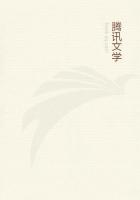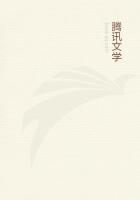The principles which have guided me on the present occasion are the same as those followed in the translation of Schiller's complete Poems that was published by me in 1851, namely, as literal a rendering of the original as is consistent with good English, and also a very strict adherence to the metre of the original.Although translators usually allow themselves great license in both these points, it appears to me that by so doing they of necessity destroy the very soul of the work they profess to translate.In fact, it is not a translation, but a paraphrase that they give.It may perhaps be thought that the present translations go almost to the other extreme, and that a rendering of metre, line for line, and word for word, makes it impossible to preserve the poetry of the original both in substance and in sound.But experience has convinced me that it is not so, and that great fidelity is even the most essential element of success, whether in translating poetry or prose.It was therefore very satisfactory to me to find that the principle laid down by me to myself in translating Schiller met with the very general, if not universal, approval of the reader.At the same time, Ihave endeavoured to profit in the case of this, the younger born of the two attempts made by me to transplant the muse of Germany to the shores of Britain, by the criticisms, whether friendly or hostile, that have been evoked or provoked by the appearance of its elder brother.
As already mentioned, the latter contained the whole of the Poems of Schiller.It is impossible, in anything like the same compass, to give all the writings of Goethe comprised under the general title of Gedichte, or poems.They contain between 30,000and 40,000 verses, exclusive of his plays.and similar works.
Very many of these would be absolutely without interest to the English reader,--such as those having only a local application, those addressed to individuals, and so on.Others again, from their extreme length, could only be published in separate volumes.But the impossibility of giving all need form no obstacle to giving as much as possible; and it so happens that the real interest of Goethe's Poems centres in those classes of them which are not too diffuse to run any risk when translated of offending the reader by their too great number.Those by far the more generally admired are the Songs and Ballads, which are about 150 in number, and the whole of which are contained in this volume (with the exception of one or two of the former, which have been, on consideration, left out by me owing to their trifling and uninteresting nature).The same may be said of the Odes, Sonnets, Miscellaneous Poems, &c.
In addition to those portions of Goethe's poetical works which are given in this complete form, specimens of the different other classes of them, such as the Epigrams, Elegies, &c., are added, as well as a collection of the various Songs found in his Plays, making a total number of about 400 Poems, embraced in the present volume.
A sketch of the life of Goethe is prefixed, in order that the reader may have before him both the Poet himself and the Poet's offspring, and that he may see that the two are but one--that Goethe lives in his works, that his works lived in him.
The dates of the different Poems are appended throughout, that of the first publication being given, when that of the composition is unknown.The order of arrangement adopted is that of the authorized German editions.As Goethe would never arrange them himself in the chronological order of their composition, it has become impossible to do so, now that he is dead.The plan adopted in the present volume would therefore seem to be the best, as it facilitates reference to the original.The circumstances attending or giving rise to the production of any of the Poems will be found specified in those cases in which they have been ascertained by me.
Having said thus much by way of explanation, I now leave the book to speak for itself, and to testify to its own character.
Whether viewed with a charitable eye by the kindly reader, who will make due allowance for the difficulties attending its execution, or received by the critic, who will judge of it only by its own merits, with the unfriendly welcome which it very probably deserves, I trust that I shall at least be pardoned for making an attempt, a failure in which does not necessarily imply disgrace, and which, by leading the way, may perhaps become the means of inducing some abler and more worthy (but not more earnest) labourer to enter upon the same field, the riches of which will remain unaltered and undiminished in value, even although they may be for the moment tarnished by the hands of the less skilful workman who first endeavours to transplant them to a foreign soil.
PREFACE TO THE SECOND EDITION.
I have taken advantage of the publication of a Second Edition of my translation of the Poems of Goethe (originally published in 1853), to add to the Collection a version of the much admired classical Poem of Hermann and Dorothea, which was previously omitted by me in consequence of its length.Its universal popularity, however, and the fact that it exhibits the versatility of Goethe's talents to a greater extent than, perhaps, any other of his poetical works, seem to call for its admission into the present volume.
On the other hand I have not thought it necessary to include the sketch of Goethe's Life that accompanied the First Edition.
At the time of its publication, comparatively little was known in this country of the incidents of his career, and my sketch was avowedly written as a temporary stop-gap, as it were, pending the production of some work really deserving the tittle of a life of Goethe.Not to mention other contributions to the literature of the subject, Mr.Lewis's important volumes give the English reader all the information he is likely to require respecting Goethe's career, and my short memoir appeared to be no longer required.















